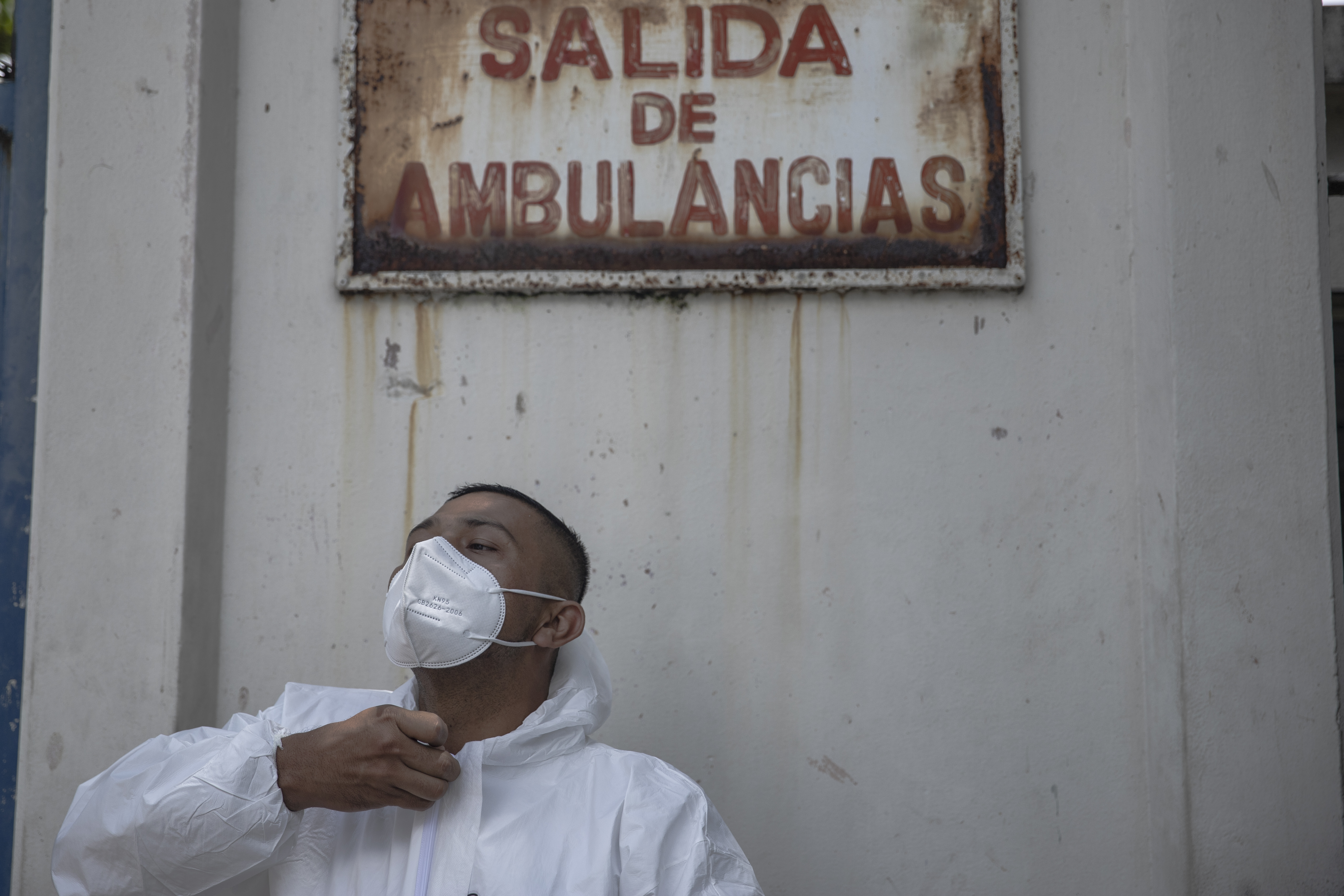Coronavirus Has Replaced Gangs as El Salvador’s Most Prolific Killer
August 21, 2020David Hernández has been working with death for 20 years in San Salvador, offering his funeral services to those in mourning.
He and his colleagues describe their trade in just one word: "muertero" (man of the dead). During the last decade, El Salvador has featured on the list of the most violent countries in the world, and the noun “muerte” (death) has been turned into a verb: “muertear,” which means to take care of the dead.
Muerteros have been offered a respite by COVID-19 from the economic blow that had set in after a historic reduction in homicides in El Salvador. President Nayib Bukele took credit for the drop in killings - many of which were the result of conflicts between the Mara Salvatrucha 13 (MS-13) and Barrio 18 gangs - calling it a ‘miracle’, but other sources suggest other dynamics were at work.
Now, the rise in confirmed or suspected COVID-19 deaths has surpassed the worst months of murderous violence in El Salvador.
Official figures report 646 COVID-19 deaths since March 19, but epidemiologists and even the authorities admit that there is underreporting. Figures from the Ministry of Health show that between just March and June 8th, burials using COVID-19 protocols totalled 2,272.
“In June and July, we alone took charge of 40 dead bodies a week. That’s just us, so imagine all the people dying across the whole country”, said David, as he waits to collect the body of a 71-year-old man who died in the intensive care unit from COVID-19 at the Rosales hospital.
Years ago, the rise in killings in El Salvador due to gang violence prompted a proliferation of funeral parlors around the country. Between the years 2015 to 2019, El Salvador registered a total of 22,135 violent homicides, an average of 368.9 per month, in a country of just over 6.5 million. For funeral parlors, that was big business.
But since 2017, murders have fallen steadily in an unprecedented trend. Not even when the government of former President Mauricio Funes (2009-2014) negotiated a truce with the country's largest gangs did homicides drop to such low levels.
Killings reached an all time low in early 2019, and have stayed down. The country now reports about 200 deaths per month, a rate of 50 homicides per 100,000 inhabitants, compared to 103 homicides per 100,000 in 2015. In the last seven months of 2020, murders have never exceeded 150 a month - that’s less than five a day. This was good news for most, but not for David and his fellow ‘muerteros’.

“COVID hit the country with more violence than the gangs. It accomplished in two months what took the gangs years to do,” says David. "In reality, COVID has been more lethal than gangs."
Health experts and even morticians assume that a large number of deaths with suspected coronavirus are actually confirmed COVID-19 deaths, but left off the official list by the Salvadoran government to reduce the official death toll. Rodolfo Antonio Martínez, aged 71, for example, died on August 13 in the Rosales hospital from COVID-19. The official cause of his death was "suspected COVID-19 and pneumonia caused by other viruses", according to the death certificate that David showed VICE News. Suspected cases don’t get on the official list, said David. “But if he didn't die from COVID-19, why was he in a unit that is exclusively for patients with that disease?”
President Bukele was the first leader in Latin America to impose restrictions due to coronavirus, and El Salvador was one of the last nations in the region to report its first case.
The largest spike in deaths from COVID-19 was during June and July. The "La Bermeja" cemetery in San Salvador, one of the largest cemeteries in the country, was doing an average of 20 COVID-19 burials a day. The mayor of San Salvador, Ernesto Muyshondt, acknowledged that if that figure remains the same, the cemetery could reach saturation by the end of August.
Protocols for burying a confirmed or suspected COVID-19 corpse means family members of the deceased can’t have any contact with the dead. Coffins are sealed with nails, and opening them is forbidden. The poor implementation of these measures has caused some hospitals to deliver the wrong bodies to families.
David and his partner Elder finish wrapping the corpse of Rodolfo Martínez, the 71-year-old man, and take him to a cemetery north of the Salvadoran capital. There, the muerteros help the gravediggers, also wearing biosecurity suits, to bury him. The process happens without much ceremony. A handful of relatives, a priest and a nurse from the Ministry of Health are scattered in the cemetery garden, far from the grave. The whole affair lasts little more than twenty minutes. As the priest says his prayers, the muerteros take off their protective suits and put them into a black bag.
Before leaving the cemetery, David lights one last cigarette. This was the last burial for him today. Tomorrow, he’ll station himself outside the Rosales hospital gates all day, hoping for the good news of someone’s bad news -- another death from COVID-19.
Cover: A funeral worker waits to bury a Covid-19 victim in the La Bermeja cemetery in San Salvador, the capital of El Salvador. Photo: Carlos Barrera.


